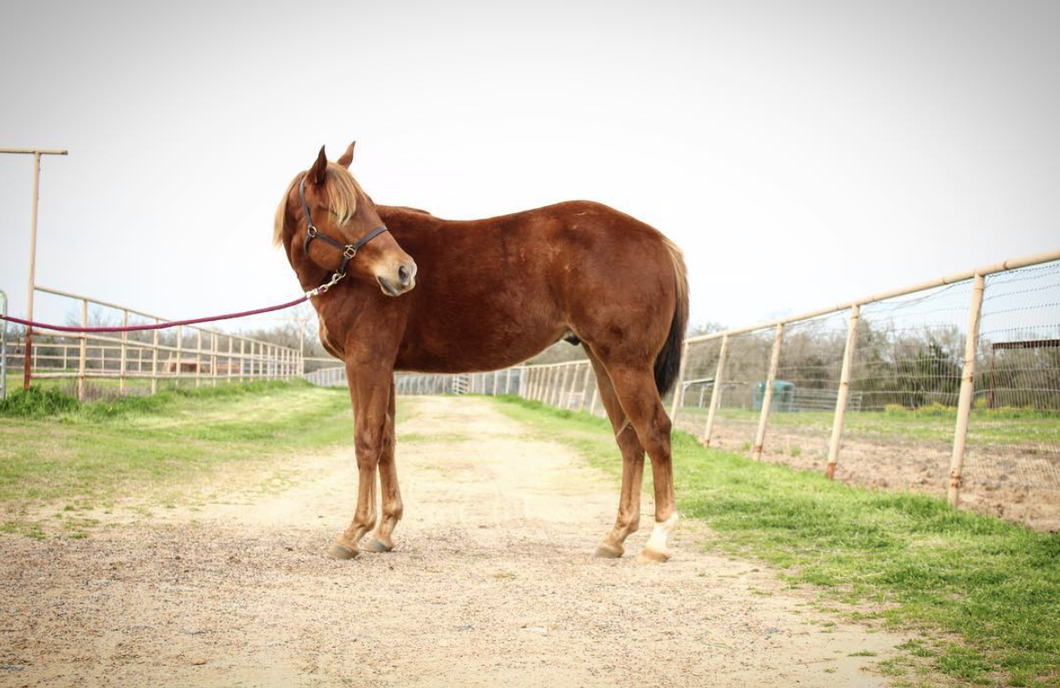Growing up, I never really experienced young horses. They tend to be a little more dangerous and therefore not ideal for a young rider. The horses I grew up with were well-trained and very quiet. Since starting my new job I've had to work with yearlings quite a bit, and it's certainly challenging. We have two yearlings currently on the property and when I started my job they had little to no training at all. Which, sure - it may sound exciting to have a blank slate, until the rear, and bite, and kick, and overall have no manners.
The two yearlings are a colt, Rainy, and a filly, Wishes. The two are as cute as can be, and very good friends. Separating them for the first time did not go well. Wishes are miles ahead of Rainy and she tends to be much quieter. Rainy is very flighty, reactive, and spooks easily - I don't care to admit how many times I've been run over by him because he saw something new and freaked out. Recently I've really buckled down on training them and getting a solid foundation started for them. I've learned a lot of things including:
Patience. Being patient with these young horses is vital. Horses are naturally prey animals - pretty much everything is out to get them in their minds, and that behavior is only amplified when they are younger. A bird flying, a stray bucket they've never seen before - chances are they're going to react to anything new they've never seen or anything sudden. I've been barreled over by Rainy because his hoof touched a bucket while walking to the stall.
Patience with these young horses allows me to remain calm in situations that are otherwise pretty hectic, such as a very large animal running you over. Patience also teaches the horse that you're not there to punish them for natural behavior, but instead, you're there to show them the world isn't so scary after all.
Empathy. Weirdly enough I've learned empathy from teaching these young guys. I try my hardest to stand back and understand their motives from the point of view from a young horse that knows nothing in the ways of manners. Understanding the horse and having empathy for their situation, in turn, helps the patience aspect of it.
Teaching. Having to teach something that you can't essentially communicate verbally with is challenging. I've had to learn a lot about how a horse really thinks, and how they view something. Having to self reflect when something isn't working, and changing how I approach a situation really helps me view myself and the way I go about things. Though when I'm able to teach something and it sticks, the feeling is amazing.
Just starting out, I've learned some things, but I still have a great amount of learning to do. In some ways, the yearlings are training me just as much as I'm training them - I wonder if I'm a good student?



















